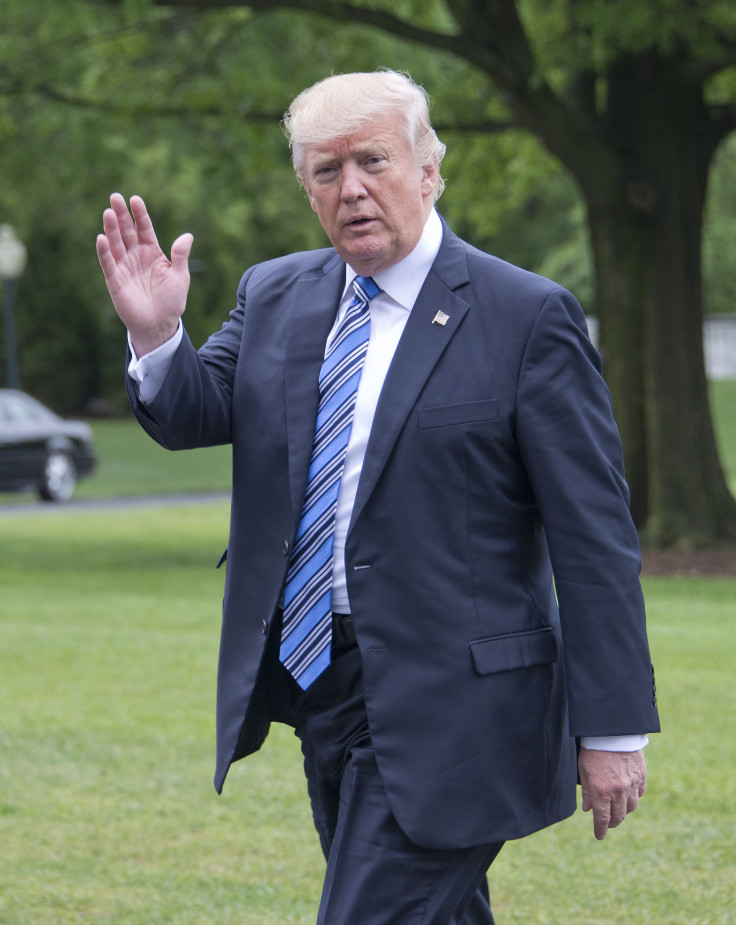Can A President Disclose Classified Intel? Yes, Experts Say As Trump Allegedly Revealed Information To Russians

President Donald Trump disclosed highly classified information last week to Russia's Foreign Minister Sergei Lavrov and Ambassador Sergei Kislyak in a White House meeting about a planned Islamic State group (also called ISIS) operation, two former and current U.S. officials with knowledge of the situation said Monday.
The Washington Post reported the incident first and said the information was supplied by a trusted U.S. ally in the fight against ISIS, according to the officials. The report also mentioned that Trump did not disclose the exact source which was used to collect the intelligence, but he provided “code-word information,” the officials said. "Trump revealed more information to the Russian ambassador than we have shared with our own allies," they told the Post.
Read: Trump Tax Plan Could Make It Easier To Hide Money In Offshore Accounts
However, the White House denied the allegation and said it was false. Several administrative officials present during the meeting also said Trump only discussed ways to combat terrorism in a broader aspect.
"The story that came out tonight as reported is false," Trump's National Security Adviser H.R. McMaster told reporters at the White House. "At no time were intelligence sources or methods discussed. The president did not disclose any military operations that were not already publicly known. I was in the room. It didn't happen," he said.
“During President Trump’s meeting with Foreign Minister Lavrov, a broad range of subjects were discussed, among which were common efforts and threats regarding counter-terrorism,” Secretary of State Rex Tillerson said in a statement.
After the incident, legal analysts and secrecy experts have been concerned about the consequences of sharing classified intelligence. However, they also said that the president has wide authority to reveal classified intelligence, which make the commander-in-chief virtually immune from prosecution.
The term classified information “means information which, at the time of a violation of this section, is, for reasons of national security, specifically designated by a United States Government Agency for limited or restricted dissemination or distribution.” The disclosure of classified information could lead to imprisonment for not more than 10 years or a fine or both. However, the president has the power to unilaterally disclose any material without having to go through a formal process, according to U.S. code 798.
But Trump’s actions could have several other consequences, of which the most important was pointed out by Mark Zaid, an attorney specializing in national security matters. He told USA Today that following Trump’s disclosure, U.S. allies could potentially lose trust in the administration’s capability to keep highly guarded secrets and thus they might not share valuable information anymore with their U.S. counterparts.
"If we get to the point where our closest allies refuse to share this information, that would be the worst outcome imaginable,'' Zaid said.
The director of the Federation of American Scientists Project on Government Secrecy, Steven Aftergood, also said the disclosures "could have profound ramifications.''
"His conduct is not a question for the Justice Department; it's a question for Congress," Aftergood added, saying Trump could be impeached if the Congress feels his actions as president are too reckless.
After the Washington Post reported the incident, several lawmakers called the alleged disclosures “inexcusable” and “deeply disturbing.”
If true, this is a slap in the face to the intel community. Risking sources & methods is inexcusable, particularly with the Russians. https://t.co/CRiSC024F7
— Mark Warner (@MarkWarner) May 15, 2017
NEW: Statement from @SpeakerRyan came. “We have no way to know what was said, but protecting our nation's secrets is paramount." (1/2)
— Lisa Desjardins (@LisaDNews) May 15, 2017
Senate Democratic leader Chuck Schumer said the report, if true, was “very disturbing.”
If the Washington Post report is true, it is very disturbing. Revealing classified information at this level is extremely dangerous.
— Chuck Schumer (@SenSchumer) May 15, 2017
House Democratic leader Nancy Pelosi called for a full briefing of the Congress “on the extent of the damage President Trump has done in compromising highly classified code-word intelligence to the Russians.”
In a tweet, Vermont Sen. Bernie Sanders said Trump was failing at protecting national security.
Protecting our national security is one of the most important tasks a president has, and Trump is failing at it. https://t.co/3hr9htzmZ2
— Bernie Sanders (@SenSanders) May 15, 2017
© Copyright IBTimes 2025. All rights reserved.






















